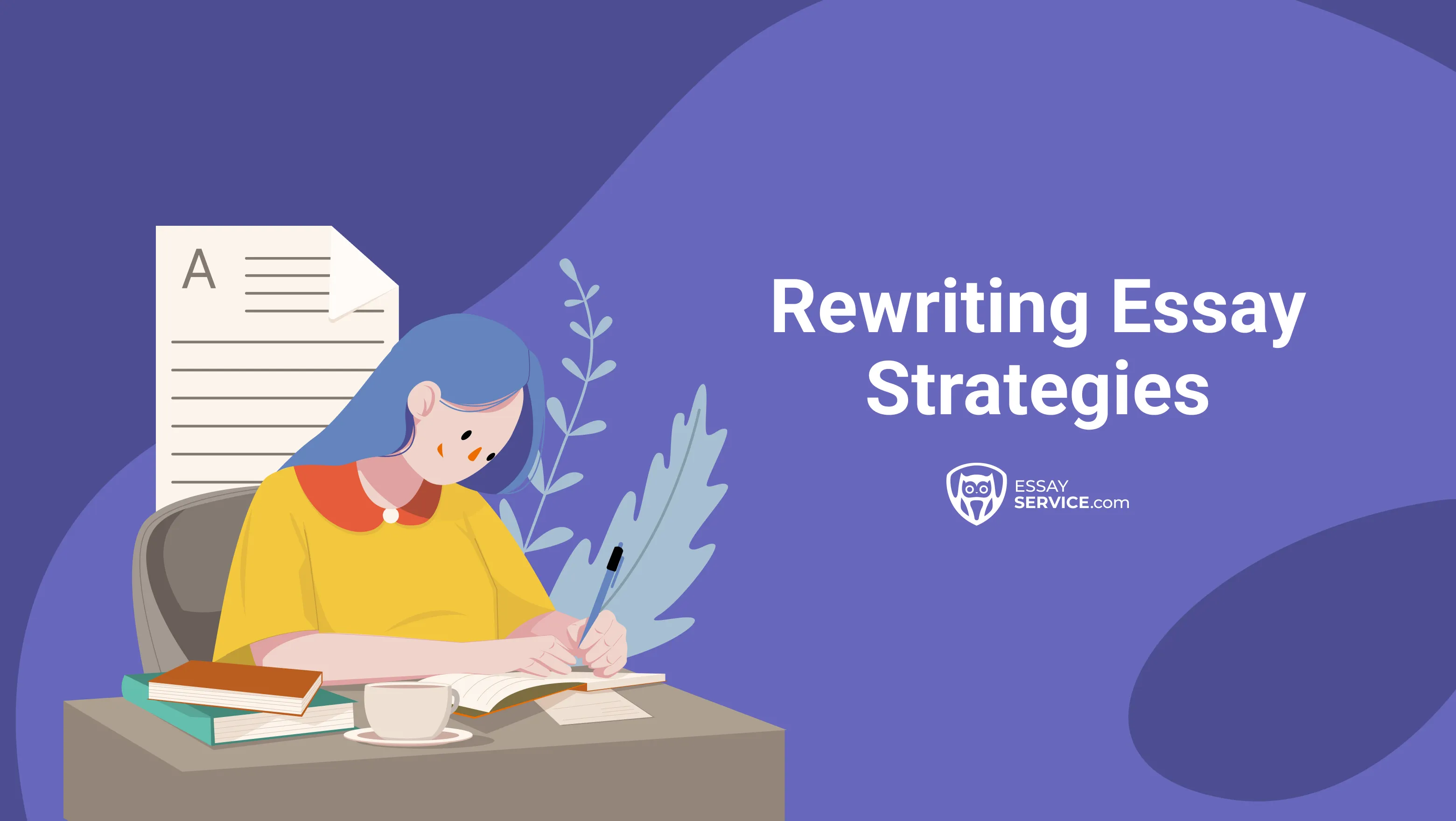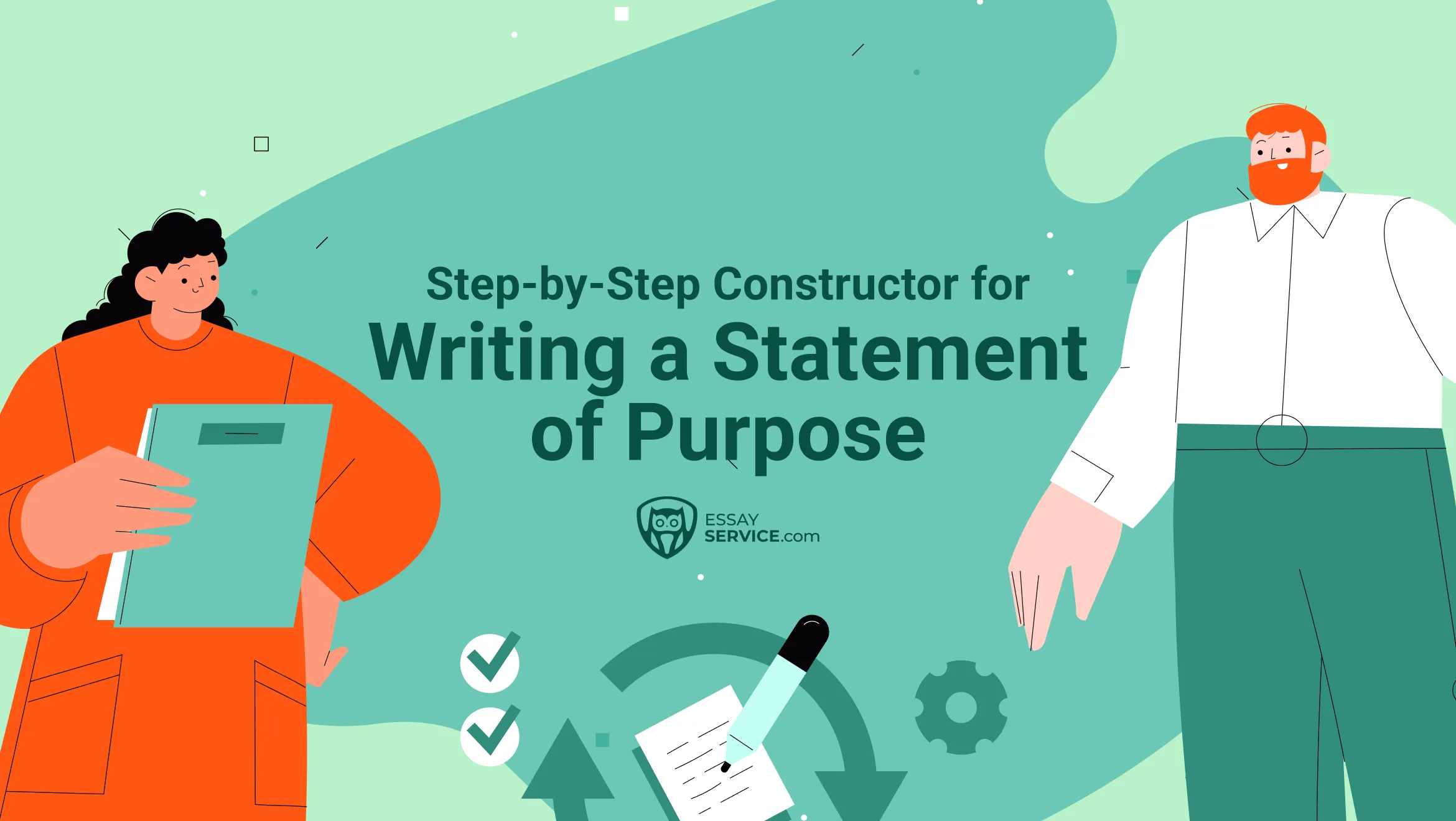A dissertation is a long, formal, detailed research paper that directly contributes to existing knowledge in a specific field. Writing a dissertation usually breaks down like this:
- Pick a topic that holds up under pressure
- Write a research proposal that makes sense
- Dig into the data or texts
- Map out the structure
- And write it piece by piece until it works
This guide will make the dissertation process feel less like a mountain and more like manageable chunks.
And if you’re ever out of time or just too burnt out to write a dissertation on your own, EssayService’s dissertation writing services can help you turn your ideas into something that flows and actually gets you closer to that degree.
What Is a Dissertation?
A dissertation is a long-form research project you write at the end of a degree program, usually in grad school or a PhD program. At its core, it’s your chance to take a research question, dig deep, and bring something new to the field. You build an argument, test ideas, and demonstrate that you actually get how research works in the real world.
How Long Is a Dissertation?
There’s no one-size-fits-all answer to how long a dissertation should be. The dissertation length depends on multiple factors, including the field of study and your level. For example, humanities dissertations often run longer, while STEM ones are usually tighter and more data-heavy. But either way, it’s long. After all, you’re writing something that could take months or more to finish.
That said, here’s a rough breakdown:
- Bachelor’s: Around 10,000-15,000 words (35-50 pages)
- Master’s: Usually 18,000-22,000 words (65-80 pages)
- PhD: Anywhere from 80,000-100,000 words (200-300 pages)
When time’s tight or burnout hits hard, it’s okay to ask for help. You can pay for paper writing from someone who understands your field and can meet your deadline.
Dissertation Structure
Every dissertation has a shape, but it’s not one-size-fits-all. You’ll usually begin with an introduction, then move into a literature review to show what’s already been said. After that, there’s the methodology, in other words, how you did the work. Then you present your results and dig into the meaning in your discussion. A conclusion ties it all together. Around that are the extras: abstract, title page, maybe some appendices.
Below, you’ll find all parts of a dissertation.
Title Page
This is the first thing anyone sees. The dissertation title page is where you put your dissertation title, your name, the university, and your degree. Some schools want the logo or your student ID, too. It’s formal, yes, but mostly just a neat front cover with the essentials.
Acknowledgment
This one’s personal. It’s your space to thank the people who helped you get through the process, such as your advisor, your family, maybe even your dog. There’s no real formula here. Just write what you mean, and mean what you write.
Abstract
The abstract is a quick peek at your whole project. It’s a summary of the dissertation, consisting of just a few paragraphs explaining the object of your project, its importance, how you did the research, and what the findings are. It’s short but tricky to write. You have to summarize months of work in a few sentences.
Table of Contents
This is your map. It shows where everything is, including your chapters, sections, all of it, lined up with page numbers. If someone wants to jump straight to Chapter 3 or your conclusion, this is how they find it. It keeps things organized.
List of Figures and Tables
This section lists the visuals, like graphs, charts, tables, and anything else you’ve used. Not the most exciting part, but it sure is helpful for the reader, especially the ones that just want to scan your work, not dig in.
Glossary
If you think the reader isn’t familiar with the words you used, like technical words and acronyms, this is where you define and break them down. It makes things easier to understand, especially for people outside your field.
Introduction
With the dissertation introduction, you set everything in motion. It’s where you explain what you’re researching, why it’s important, and what your main question is. It’s usually around 10% of your total word count. Get your reader grounded in the topic, don’t overdo it.
Learn how to write a thesis statement.
Literature Review
You’ve done your homework, and this is where you show it. You discuss what other researchers have already said, which theories they used, where the gaps are, and how your project fits in.
- It usually takes up 20-30% of your dissertation
- Focus on key themes, not just summarizing study after study
- Aim to make connections, not just list everything chronologically
- You’re building a case for why your research matters
Methodology
This part explains how you did your research. What tools you used, how you gathered your data, and why you chose this approach instead of others. Common length: 15-25% of the dissertation.
- Explain your methods clearly (interviews? surveys? lab experiments?)
- Justify your choices and explain why this method fits your question
- Mention ethical concerns, limitations, and how you handled them
Results
This section is just the facts, what you found, without getting into what it all means (yet). It could be numbers, themes, quotes, or graphs. Length can vary based on your field. Stick to the data. Save an interpretation for the next section.
Discussion
This is where you slow down and really think things through. You’re not just reporting results anymore. Now, you’re figuring out what they mean, how they connect, and why they matter. This section is where your voice gets stronger.
- Usually takes up about 15-20% of the total
- Talk about patterns, surprises, or anything that didn’t go as planned
- Connect your findings to earlier research and talk about where you fit in
- Be honest about limits. It won’t hurt you
Conclusion
The dissertation conclusion is your chance to zoom out. What did all this work lead to? What’s the point of it all? The conclusion isn’t a summary. It’s the moment where you make it clear why your research matters.
- Keep it focused, around 5-7% of the word count
- No new info here. Just wrap-up
- Restate your main argument and leave the reader with something clear
- If there’s more to explore, say so
Bibliography
Every source you used needs to be listed here in the right format. It’s part proof and part map, showing where your ideas came from and where people can go if they want to read more.
- Follow the style guide your program requires (APA, MLA, etc.)
- List everything you cited, and only what you cited
- Be consistent. Formatting matters more than you think
- Double-check everything: names, years, page numbers
Appendices
This section holds everything that didn’t quite fit into the main story but still matters. Think: raw data, full interviews, extra charts, things readers might want to check out if they’re curious.
- No word count rules
- Use clear labels (Appendix A, B, etc.) so readers don’t get lost
- Make sure you mention them in your main chapters
- Don’t throw in random extras and stay relevant
How to Write a Dissertation
The dissertation process can feel huge at first, but it really comes down to a few key stages. Once you see the big picture, it gets a lot more manageable.
- Choose a topic that genuinely interests you
- Do some initial research and submit your proposal
- Gather your sources or data
- Write, revise, and refine your chapters
- Defend your work when it’s ready
Start with the Right Topic
Start with what pulls you in. What are you curious about? What’s been stuck in your head lately? The best dissertation topics come from genuine interest, not pressure to sound ‘academic enough.’
Look for something that:
- Has space to explore
- Feels personal, or at least familiar
- Has enough research already done, so you’re not starting from zero
Do Some Early Research
Before you go all in, test the waters. Read articles, skim through journal abstracts, see what’s already been said. This step helps you shape your direction and avoid chasing a dead end.
- Is there a gap you can fill?
- Are people still debating the topic?
- Can you find credible sources easily?
Pitch It - Your Proposal
This is where writing a dissertation and your topic get real. The research proposal lays out your question, what you plan to explore, and how you’ll go about it. It doesn’t need to be perfect, but it needs to convince your advisor that your idea is worth digging into. Expect feedback, and probably a few rewrites.
Dive into the Real Research
Now comes the deep part. This is where you collect what you need, like data, interviews, experiments, surveys, texts, whatever your field calls for.
Stay organized. Something unexpected might show up, but don’t panic.
Tips:
- Keep your notes searchable
- Save your sources (you’ll need them later)
- Don’t wait too long to start making connections
Map Out the Whole Thing
Before you write anything, sketch a rough dissertation outline. This isn’t busywork. It’s a way to stay sane once you start writing. It helps you group ideas, track your argument, and see where things are thin.
Include:
- Chapter breakdowns
- Key points under each section
- Notes on where quotes, stats, or arguments will go
If you're feeling overwhelmed at any stage, a thesis writing service can help you stay on track.
Write the Messy First Draft
Write a dissertation. But make it the first draft. This is not your final product, so don’t treat it like one. Just get the words down. Let it be ugly and all over the place if it needs to.
Focus on:
- Making progress, not perfection
- Following your outline
- Finishing each section before obsessing over polish
Check In With Your Adviser
Don’t vanish while you write. Regular check-ins can save you from major rewrites later. Share drafts, ask questions, and be honest about what’s working and what’s not.
These chats can also help you:
- Clarify confusing parts
- Catch blind spots
- Get a reality check before it's too late
Collect Feedback
Once your full draft is ready, give it to people you trust. It can be your adviser, a friend in your program, or even a writing tutor.
Ask for:
- Notes on structure and clarity
- Feedback on your argument’s strength
- Suggestions for gaps or weak spots
Sometimes you just need an expert to take the pressure off. If you're thinking, ‘Can someone just write my dissertation for me?’, you're not alone. We do exactly that, without cutting corners.
Write the Final Version
Now you turn your rough draft into something tighter, sharper, and way more readable. Fix the pacing. Cut repetition. Make sure your ideas actually land.
Things to double-check:
- Transitions between sections
- The strength of your conclusion
- That everything connects back to your research question
Edit and Proofread Like It’s Your Job
This part takes more time than you think. Don’t just run spellcheck. Read it aloud. Check your references. Fix any formatting issues.
- Double-check your citations (APA, MLA, Chicago, or whatever your school requires)
- Look for accidental plagiarism
- Make sure everything flows smoothly
Defend What You Wrote
At this point, you’ve lived with your dissertation for months. Now it’s time to talk about it. Your dissertation defense is a conversation, not an interrogation.
Be ready to:
- Explain your choices and methods
- Show how your research contributes something new
- Discuss what surprised you, and what you’d do differently
Need help with a chapter, proofreading, or just getting your citations right? Our professional writing services are here to support you every step of the way.
Dissertation Writing Checklist

My topic clearly answers a research question.
I have included all the required parts of a dissertation.
My methodology section is detailed and clear.
My citations are complete and consistent throughout.
I have proofread more than once, with fresh eyes.
I have double-checked the submission guidelines from my department.
I double-checked the word count to make sure I’m within the limit.
All charts, tables, and visuals are labeled and referenced correctly.
I read my abstract to confirm it reflects the main argument and findings.
I gave myself extra time in case of technical issues during submission.
Final Words
Writing a dissertation can feel like a lot, and it is. But once you break it down, it’s really just a long research story told one step at a time. You’re not expected to know everything at the start. You figure it out as you go.
- Here’s what’s worth keeping in mind:
- A clear research question makes everything easier
- The structure helps, but it’s your thinking that holds the whole thing together
- Expect to revise (a lot), and that’s okay
- Feedback will sting sometimes, but it will also make the work better
- You don’t have to do every part alone
If you ever feel stuck or like your brain’s just out of steam, EssayService is here for that. We help students get unstuck, whether you’re outlining, rewriting a tough section, or just trying to make the whole thing sound coherent. Buy dissertation online and let us take the load off your shoulders.
Frequently Asked Questions
How Many Pages Is a Dissertation?
It varies. But here’s a general ballpark:
- Bachelor’s: about 35 to 50 pages
- Master’s: 65 to 80 pages
- PhD: closer to 200-300 pages
Some fields (like engineering or math) tend to be shorter, while humanities or social sciences might stretch longer.
How Long Does It Take to Write a Dissertation?
There’s no set pace. Some people take 6 months. Others need 2 years. It depends on your schedule, how often you write, and how clear your topic is. Life gets in the way sometimes, and that’s normal.
How Many Words Is a Dissertation?
Here’s a rough guide:
- Bachelor’s: 10,000-15,000 words
- Master’s: 18,000-22,000 words
- Doctoral: 80,000-100,000 words

Eugene has spent the past 15+ years editing and proofreading articles for academic journals, newspapers, and magazines. His attention to detail and experience power actionable advice on citations, tone of voice, and more.
- National University. (n.d.). Formatting your dissertation or thesis. NU Library. https://resources.nu.edu/c.php?g=1006027&p=8021697
- University of Rochester. (n.d.). PhD defense: What to expect. https://www.rochester.edu/college/gradstudies/academics/phd-defense.html
New posts to your inbox
Your submission has been received!



